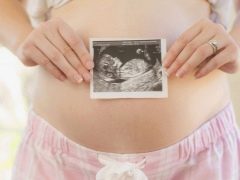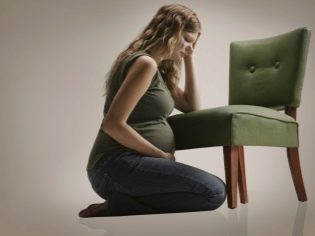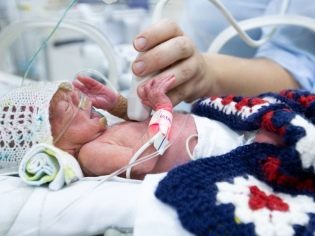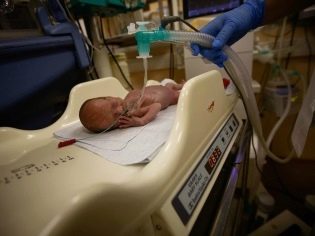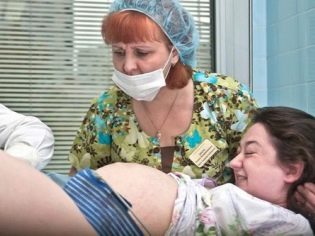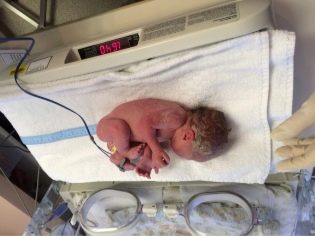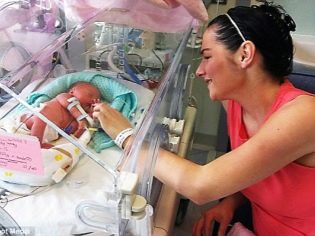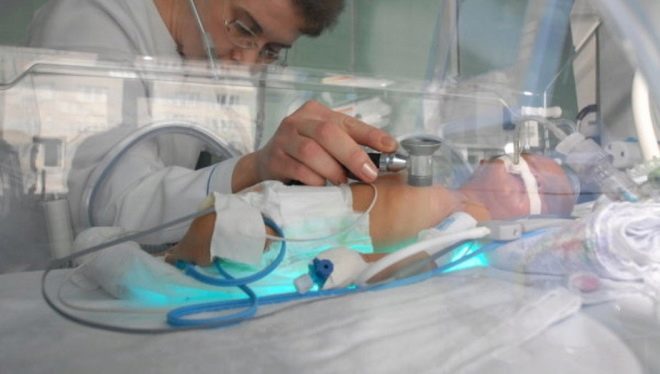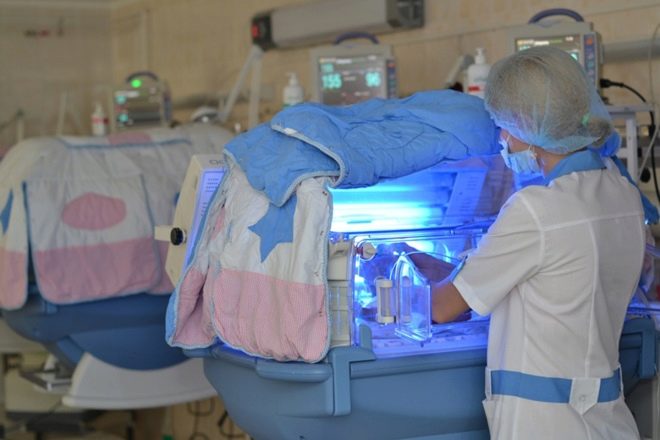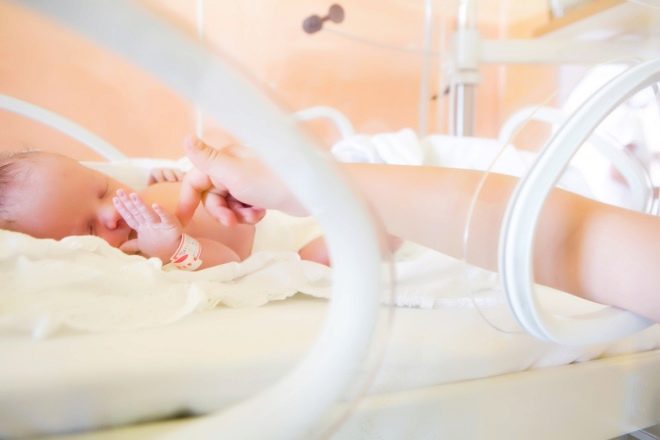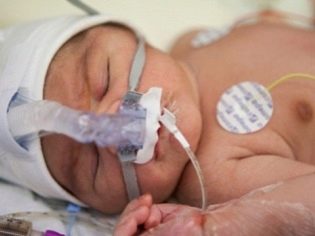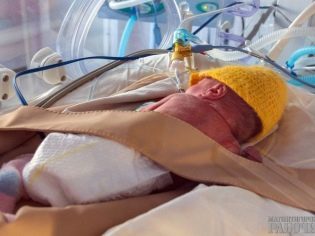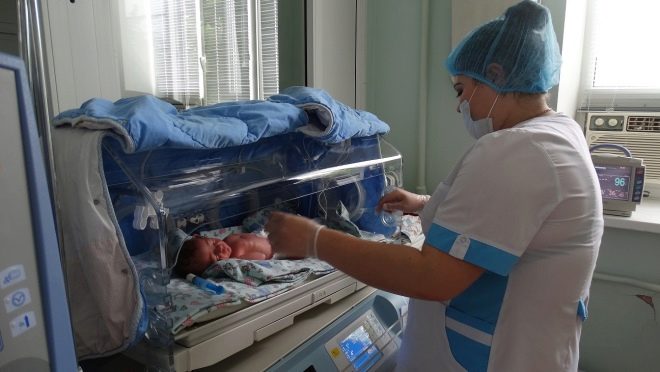Births at 29-31 weeks of pregnancy
At 29-30 weeks of pregnancy, most women usually go on maternity leave, and the real pregnant life without working days is just beginning. But for some, pregnancy at this time is already ending in childbirth.
In this article we will talk about whether the births at the 29th, 30th and 31st week of pregnancy are so scary and dangerous, what the consequences might be and whether there are ways to prevent such births.
A few words about the term
Until the end of the 90s of the last century, a child who was born before week 28, inclusive, was generally considered a miscarriage at a later date, and the fact of his birth was recorded only if the child miraculously managed to live for seven days.
Now the standards are different. Beginning at 22 weeks, born children are considered premature, but still children, but because they are obliged to provide all necessary medical care.
Births at 29-31 weeks of pregnancy are premature, early deliveries, which, of course, can be dangerous both for the mother and for her child. The share of preterm delivery at this time, according to statistics, accounts for about 15% of cases.
Children are born in serious condition, but modern medicine can help them survive, although this, alas, is not always possible.
It should be noted that in women after 29 weeks of pregnancy, childbirth in most cases begins spontaneous, spontaneous and only in 20% of cases, childbirth at this obstetric period has to be caused by artificial means on the basis of medical grounds. Almost half of women in labor prematurely amniotic fluid, and this is the beginning of labor activity. Slightly less often, the process of giving birth to a child begins with contractions.
Induction of labor or cesarean section on this period is carried out only for emergency reasons.in which the life of a mother or child is in mortal danger if the pregnancy is prolonged.
The development and condition of children, vitality
Births at the 30th week of pregnancy are undesirable, because the baby is in a state of active development, but if he is born, he has more chances to survive than children under 28 weeks of gestation. In this period, nine out of ten fruits are located in the head presentation, and this fact increases the chances of a successful outcome of preterm labor..
Growth of babies at this time on average is about 40 centimeters, and weight is about one and a half kilograms. But these parameters are very individual: there are children who, at 30 weeks, exceed the mark of one and a half kilograms, and there are also those that do not reach the kilogram. From the weight depends on the prognosis of viability.
The skin of children born at 29-30 weeks and a week later, almost always red, because subcutaneous fatty tissue has not yet accumulated. It is mainly formed in the last trimester, and this layer is most actively growing in the last month of gestation. In the meantime a layer of subcutaneous fat is approximately 6% of the total weight of the fetus, and it gives reason to believe that the baby will definitely have problems with thermoregulation after birth. He will not be able to keep heat for the first time without medical care..
The auricles of babies are soft and stick out a little, the hardening of cartilage tissue occurs later, and therefore the degree of softness of the ears will be an important diagnostic sign of the degree of prematurity at birth. Children at this period are often born with the remains of thin, white hair on the body. Lanugo gradually falls out on its own and does not require treatment.
Children born at week 30 almost always have certain problems with the nervous system, since it is at this time that the processes of differentiation of the cerebral cortex must be completed. Basic reflexes already exist, but the respiratory reflex is still in its infancy.
Internal organs are formed and begin to function. Naturally, they are immature morphologically and functionally, but have every chance of full functioning with proper care and medical care.
The process of formation in the lung tissue of surfactant is in full swing. This substance provides the newborn the opportunity to breathe on their own. In sufficient quantities for this in the alveoli, surfactant accumulates by the 38-39 week of pregnancy, giving birth in earlier periods is an event risky for the reason that the surfactant may not be enough. It is fraught with respiratory failure.
Born at 30 weeks usually need artificial lung ventilation.
Statistics says that survives among those born at 29-31 weeks of gestation to 80% of children, if urgent resuscitation care is provided.
If the birth takes place at home or in a medical facility that is not intended for resuscitation of newborns and premature babies, then only 5% of the children have a chance to survive. According to the international classification of prematurity, such children belong to the third group, less often - to the fourth. The third group is characterized by a serious condition of the baby at birth, but forecasts for the future are more favorable. The fourth group includes children with extremely low birth weight (less than a kilogram). The probability of survival in this group is small.
Some more statistics. If childbirth occurs at 29-31 weeks of pregnancy, then:
- in 70% of cases children survive, but have health problems that can be overcome at a very early age;
- in 19% cases health problems for a child exist longer, but by the age of 10-12 years they can cope with them or minimize their manifestations, they do not give a disability;
- in 6% of cases children survive, but remain disabled for life;
- in 3% of cases children do not survive, die within the first week;
- in 2% of cases stillbirth is recorded.
In many ways, the forecasts will depend on how the reanimation is equipped. These children need special resuscitation neonatal incubators, which maintain the necessary temperature, humidity, and oxygen supply. Feeding is carried out exclusively through the probe.
The task of the doctors at this stage is to bring the weight of the child to 1.7 kilograms, if at birth he was less. Then the child is placed in a special heated bed in which he has to grow up to 2 kilograms. Then it will be possible to prescribe the mother with the baby home or transfer to the children's hospital to be treated.
The reasons
Births at this time can occur for various reasons, knowing that it is possible to prevent premature birth of the baby. Most often, deliveries at 29-30 and 30-31 weeks occur in women with a burdened obstetric history, several abortions in the past, operations on the uterus and ovaries. Also at risk are pregnant women who have previously had several miscarriages, as well as premature births, especially if they occurred at the same time.
Various chronic diseases in women can also trigger premature laborFor example, pathologies of the kidneys, heart, endocrine disorders. Women with genital infections, cervical insufficiency, preeclampsia, and diabetes can also give birth to this term. The causes of the onset of labor at 30 weeks can be genetic abnormalities of the fetus, its malformations, rhesus-conflict.
Women who are in a state of severe stress, who smoke and use alcohol and drugs during gestation, and pregnant with twins or triplets, also risk.
Possible consequences
Risks for women in childbirth at this time are assessed as minimal.Breaks of the genital tract and cervix are unlikely, because child has a small weight and height, the diameter of its head is also small. The probability of postpartum complications is somewhat higher: the risk of inflammatory processes and hypotonia of the uterus is increased, at which it will slow down to normal size more slowly.
The main risks are children's. Children with 3-4 groups of prematurity almost always have problems with neurology. In severe cases, if a child is born with a mass below a kilogram, the risks of total brain damage and cerebral hemorrhages are high, which can result in deaf-blindness and cerebral palsy.
No doctor, even if he has the title of professor and rich experience in rescuing heavy and extremely heavy premature babies, can tell in advance what the consequences of such an early birth can be. Everything will depend on the circumstances, complications and outcomes of the personal struggle of the crumbs for their own lives.
Neonatologists usually more than other doctors believe in higher powers. Because sometimes children who, according to all medical assessments, should not have survived, survive completely inexplicably, and children who had good chances suddenly die for no apparent reason.
Much depends on the parents. All the same neonatologists claim that the positive attitude of the mother, her faith in the strength and ability of her own baby to survive and be healthy, create real miracles.
From a medical point of view, it is very difficult to explain this invisible connection between a mother and a premature baby, but even skeptical doctors of the “old formation” do not deny its existence.
Women reviews
According to the reviews of women, after giving birth at this time there are often problems with the establishment of lactation. The child is not brought for feeding, he is in intensive care, and constant pumping is not always a woman exhausted by fears and doubts. In a state of worrying about the life and health of the baby, many women face lack of breast milk.
There are entire communities on the Internet for parents whose children were born much earlier. In them, mothers provide each other with psychological support, and they also share methods and tips for rehabilitating premature babies during the first year of life and later, because such babies need a different quality of care.
For more information on caring for premature babies, see the neonatologist in the video below.
